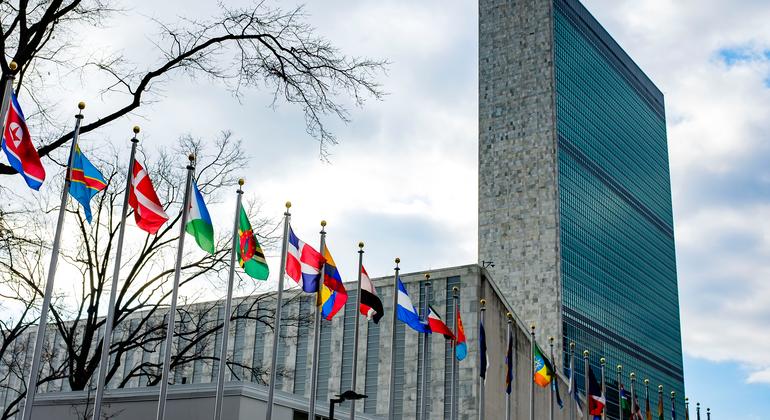Sure! Here’s the translation into American English:
—
The United Nations is facing a concerning financial crisis that could lead the organization to a “race toward bankruptcy” if member states do not meet their payment obligations. Secretary-General António Guterres presented a proposal for an ordinary budget for the year 2026 amounting to $3.238 billion, significantly lower than the initially requested $3.715 billion and 15.1% less than the approved allocation for 2025.
During his address before the Fifth Committee of the General Assembly, Guterres warned of an alarming landscape marked by payment delays and outstanding contributions that are affecting the organization’s liquidity. This state of precariousness is exacerbated by a “refund of credits” that could jeopardize essential operations.
The new budget budget anticipates a drastic reduction in staff, decreasing from 13,809 to 11,594 positions, representing an 18.8% cut compared to the previous year. Adjustments will focus on the largest administrative departments, while efforts will be made to protect programs that provide direct services to least developed and developing countries.
Guterres explained that the liquidity crisis will not only impact 2026 but that its effects will extend into 2027. At the end of the previous year, arrears totaled $760 million, and an obligation to refund $300 million at the beginning of 2026 would eliminate nearly 10% of the budget. In light of this situation, he urged member states to reduce arrears and suspend credit refunds to prevent an even greater financial collapse.
The numbers are alarming; at the beginning of 2025, the UN reported a deficit of $135 million. By the end of September, it had only collected 66.2% of the annual dues, in contrast to 78.1% in the same period in 2024. Of the 193 member states, only 136 had fulfilled their full payment of dues, and major contributors like the United States, China, Russia, and Mexico still have outstanding debts.
The revised budget takes into account not only the challenging financial reality but also a broad reform known as the UN80 Initiative, which aims to make the organization more efficient and cost-effective. Proposed measures include consolidating payroll and relocating functions to lower-cost regions, although priority programs such as 37 Special Political Missions will continue to operate alongside the Resident Coordinator System and the Peacebuilding Fund.
The Fifth Committee will debate the proposal in the coming weeks and is expected to present its recommendations to the General Assembly plenary, with final budget approval anticipated by the end of December. Guterres also emphasized the importance of establishing a mechanism to suspend credit refunds during times of liquidity crises, a consensus that has yet to be achieved among member states, leaving crucial elements of the UN’s work program at risk.
—
Let me know if you need anything else!
Referrer: MiMub in Spanish











